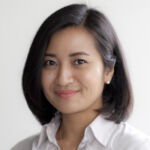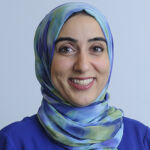This story is part of our Summer 2021 Newsletter. To read the full newsletter, click here.
“AS PHYSICIANS OUR JOB is to think holistically about health,” says Altaf Saadi, MD, MSc, Co-Director of the MGH Asylum Clinic. This comprehensive view orients the future of the Asylum Clinic—which conducts forensic medical examinations for individuals seeking asylum.
Since launching in October 2017, the Asylum Clinic has undergone tremendous growth; increasing its capacity to perform examinations for asylum-seekers, responding to COVID-19, and bringing together a wide network of providers within MGH and the greater Boston community.
“We’ve seen about 325 asylum-seekers in the last three and a half years,” Matthew Gartland, MD, Director of the Asylum Clinic says. “We have 140 volunteers who are active with us at MGH. We have a network of about 65 volunteers in the wider Boston region.”
Noting this success and the Clinic’s expanding capacity to provide forensic medical examinations, the Asylum Clinic’s leadership asked what else can we be doing?
To complement the work and serve clients beyond the examination, the Asylum Clinic is focused on the expansion of several projects: connecting asylum-seekers to support after their forensic medical examinations, finding ways to conduct community responsive research, and expanding the clinic’s capacity for advocacy in the asylum and immigration spaces.
Manami Uechi, MD, MMSc, joined the Asylum Clinic this past February as a Program Coordinator. Uechi was born in Japan and moved to the United States when she was 15. She faced isolation after moving that cemented a desire to serve and support those who immigrate to other countries. This experience also helped her understand the fear and language barriers many asylum-seekers encounter.
In her role as Program Coordinator, she helps connect clients with local services. Her role focuses on the social determinants of health needs of the Asylum Clinic’s clients.

Manami Uechi, MD, MMSc, Program Coordinator MGH Asylum Clinic
“Social determinants of health are factors and conditions in environments where individuals live, work, and learn that affect all aspects of their health, well-being, and quality of life,” Uechi says. “Social determinants of health often contribute to a wide range of health inequities and disparities.”
“In the past many of our volunteers have gone the extra mile to do this connecting,” Gartland explains. “But we’re now building a formal system to do it on a broader scale to provide holistic care.”
In addition to connecting people to local resources, the Asylum Clinic has begun to serve a role in research and advocacy. In her role, Saadi helps craft this new future for the Asylum Clinic.
Before volunteering with the Asylum Clinic, Saadi, a neurologist, worked with asylum-seekers in Los Angeles, California and with the Physicians for Human Rights Network. In her work she’s advocated for improved research on asylum-seekers, to better understand their needs and experiences.
“There are many unanswered questions about how to best care for this population,” Saadi says. “Especially thinking about cognitive issues and trauma that affects the legal process. The hope of the Asylum Clinic is to gather community input and really to start at ground zero and ask what are the questions that we should be asking.”
“We’re also partnering with The Center for Immigrant Health at MGH to build a community advisory board,” Gartland continues. “In that group will be people with lived experience of seeking asylum, immigrants, and people leading community organizations serving the immigrant community. This group will help us direct the future and determine what the needs of our potential clients are.”

Altaf Saadi, MD, MSc, Co-Director, MGH Asylum Clinic
This focus on community engagement will ensure the Asylum Clinic is actively aligned with the needs of its clients. However, the clinic recognizes there are still many needed changes to make communities in the United States more responsive to individuals seeking asylum. This drives the Asylum Clinic’s expansion of its advocacy projects.
“Because of the work we do and because of the climate for immigrants in this country right now, we feel there’s a role we need to play as advocates,” Gartland says. “Especially because of our medical expertise.”
Similar to the social determinants of health work being formalized by Uechi, many Asylum Clinic volunteers previously engaged in advocacy work independently—Gartland and Saadi both have provided testimony on behalf of immigrants or incarcerated populations. However, the clinic hopes to coalesce these individual efforts into a unified and targeted advocacy approach.
“How can we leverage the unique experience of our clinicians?” asks Saadi. “How do we speak and talk to policy-makers around policies that negatively impact [asylum-seekers]?”
The clients, volunteers, and community partners involved with the Asylum Clinic shape the program’s future and help answer these questions. Now, as the Asylum Clinic moves beyond forensic medical examinations into a more holistic model, Uechi, Gartland, Saadi, and the full network of Asylum Clinic volunteers have an opportunity to support asylum-seekers in ways beyond medical examinations.

